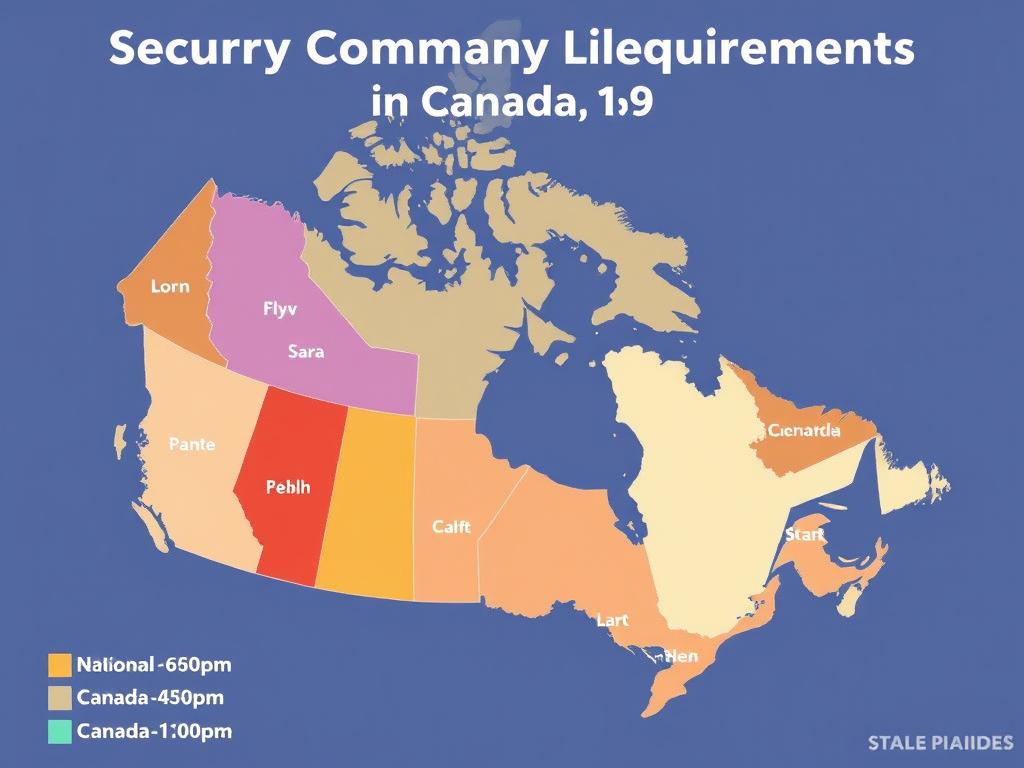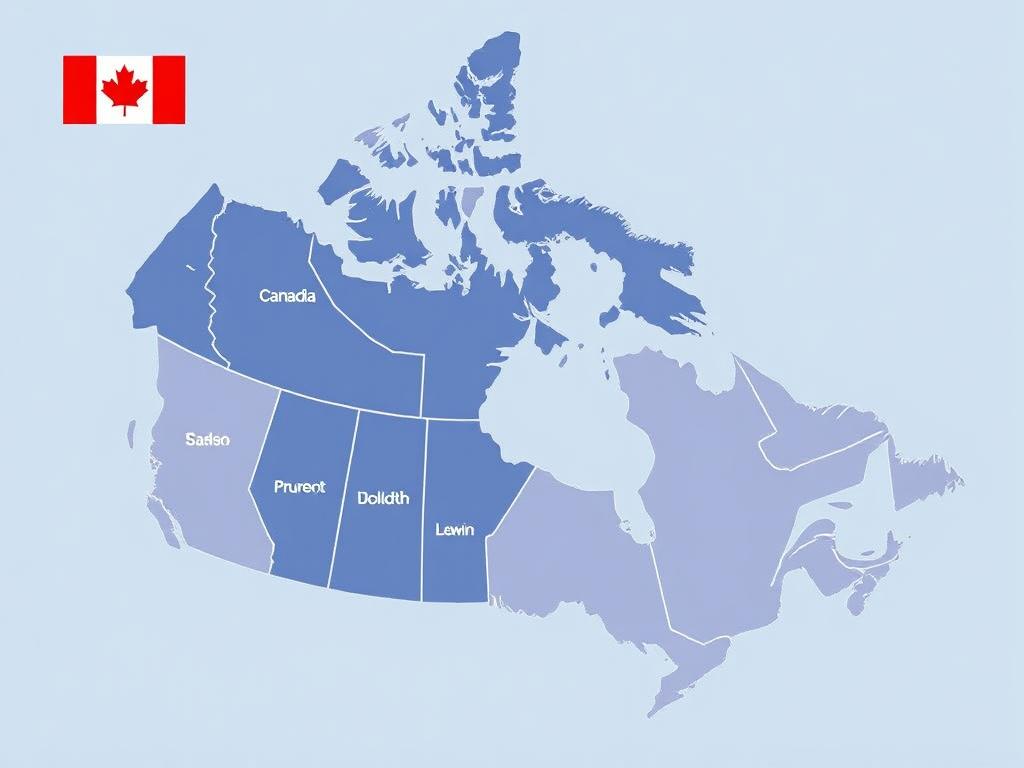When it comes to operating a security company in Canada, understanding the licensing requirements is crucial. Whether you’re starting a small security business or managing a large firm, each province has its own set of rules and regulations that must be followed to ensure compliance and legitimacy. Navigating these provincial differences can be complicated, but this guide will walk you through the essential security company licensing requirements in Canada, province by province. We’ll explore what is needed to obtain a license, the responsibilities that come with it, and important considerations for security companies operating across provincial borders.
Why Licensing Matters for Security Companies
Running a security company without the proper license isn’t just risky—it’s illegal. Licensing ensures that security companies meet minimum standards of professionalism, training, and ethical behavior. It protects not only the company’s reputation but also the clients and the public who rely on these security professionals. Licensing helps to control who can operate in this sensitive sector, deterring unqualified or unscrupulous providers. In addition, many insurance providers require firms to be licensed before coverage is approved.
Security company licensing requirements in Canada are designed to promote consistency in service quality while respecting the unique legal framework and community needs in different regions. For clients, knowing their security service provider is licensed adds peace of mind that they are working with trained and vetted professionals.
Understanding the Scope: What Does a Security Company License Cover?
Before diving into the specific provincial requirements, it’s important to clarify what a security company license typically authorizes. Generally, a security company license allows a business to provide various security-related services such as:
- Providing security guards for premises or events
- Alarm response and monitoring
- Security consulting and risk assessments
- Operating private patrol services
- Installing and maintaining security equipment (in some provinces)
The precise services allowed under a license can vary by province, so always verify that your company’s planned services fall within the allowable scope.
Security Company Licensing Requirements in Each Canadian Province

Canada’s federal system means provinces handle security licensing individually. Below, we break down the requirements for each province.
Alberta
Alberta’s security industry is regulated under the Security Services and Investigators Act. To operate a security company, businesses must hold a Security Agency License from the Alberta Ministry of Justice & Solicitor General. Key requirements include:
- Application submission with detailed company information
- Proof of liability insurance coverage
- Criminal record checks for owners and managers
- Designated manager certification with appropriate security training
- Payment of licensing fees
Alberta mandates that security guards themselves also be individually licensed, meaning the company must ensure all employees are properly certified.
British Columbia
In British Columbia, the Security Services Act governs the licensing of security companies. The requirements include:
- Applying through the Security Programs and Police Technology Division
- Designating a qualified security manager who holds a valid license
- Providing proof of insurance and bonding
- Submitting fingerprints and passing a criminal background check
- Maintaining detailed employee records
BC also requires security guards and alarm operators to be separately licensed, so companies must strictly comply with employee licensing regulations.
Manitoba
Manitoba licenses security companies through the Manitoba Consumer Protection Office. To obtain a license, companies must:
- File an application disclosing ownership and operational details
- Provide evidence of valid liability insurance
- Ensure that security guards hold valid licenses
- Pay applicable fees for both companies and individual guards
Additionally, the province has strict rules on record keeping and reporting that licensed companies must observe.
New Brunswick
The New Brunswick Department of Public Safety oversees security company licensing. Applicants must:
- Complete an application form for a security agency license
- Ensure that at least one manager holds a security officer license
- Submit fingerprints and a criminal record check
- Provide proof of insurance
- Pay required fees
In New Brunswick, companies must maintain compliance with training mandates for guards and report changes in ownership promptly.
Newfoundland and Labrador
Security companies are regulated by the Government Services Centre. The licensing process involves:
- Filing a formal application with company details
- Submission of police record checks for owners and managers
- Proof of insurance, typically general liability
- Appointment of a qualified security officer as manager
- Compliance with training standards for security personnel
Licensing must be renewed annually, and companies must submit continuing evidence of compliance.
Nova Scotia
The Nova Scotia Department of Justice administers security company licensing. Key points are:
- Application process requiring disclosure of ownership and management
- Designated manager must possess a security license
- Insurance proof submission
- Background checks on principals
- Employee licensing and training compliance
The province stresses ongoing education and compliance audits for licensed firms.
Ontario
Ontario has one of the more comprehensive security company licensing regimes under the Private Security and Investigative Services Act. Companies must:
- Apply to the Ministry of the Solicitor General for a license
- Designate a licensed business manager
- Submit detailed company information and police checks
- Provide liability insurance documentation
- Ensure all employed security guards and investigators hold individual licenses
Ontario also enforces initial training requirements and continuing education for license holders.
Prince Edward Island
The PEI Department of Justice regulates security companies. The requirements include:
- Licensing application with business and ownership details
- Proof of insurance and bonding
- Mandated criminal checks on key personnel
- Manager must hold a security training certification
PEI emphasizes transparency and requires license renewal on a periodic basis.
Quebec
In Quebec, regulation falls under the Bureau de la sécurité privée. To operate a security company, applicants must:
- Apply for an enterprise certificate from the Bureau
- Appoint a responsible person with a valid security license
- Carry adequate insurance
- Undergo criminal background checks
- Comply with provincial training and operational standards
Quebec’s regulatory environment is strict, and enforcement is rigorous.
Saskatchewan
The Saskatchewan Ministry of Justice manages security company licensing. To qualify, companies must:
- Submit completed application forms
- Provide criminal record checks for business owners and managers
- Hold liability insurance
- Designate a qualified security manager
- Train and license security staff
Saskatchewan maintains an emphasis on public safety and transparent business practices.
Northwest Territories, Nunavut, and Yukon
Licensing in the northern territories follows specific guidelines due to unique regional circumstances. While each territory has similar licensing schemes, they often require:
- Application demonstrating capacity to provide reliable security services
- Background checks including local legal considerations
- Proof of insurance and bonding
- Qualified personnel with appropriate training
Because of fewer operators in these regions, regulators often provide additional guidance and flexibility while still enforcing strict standards.
Comparative Table: Key Licensing Requirements By Province
| Province | Licensing Authority | Manager Licensing Required | Employee Licensing Required | Criminal Record Checks | Liability Insurance Required |
|---|---|---|---|---|---|
| Alberta | Ministry of Justice & Solicitor General | Yes | Yes | Yes | Yes |
| British Columbia | Security Programs and Police Technology Division | Yes | Yes | Yes | Yes |
| Manitoba | Consumer Protection Office | Yes | Yes | Yes | Yes |
| New Brunswick | Department of Public Safety | Yes | Yes | Yes | Yes |
| Newfoundland and Labrador | Government Services Centre | Yes | Yes | Yes | Yes |
| Nova Scotia | Department of Justice | Yes | Yes | Yes | Yes |
| Ontario | Ministry of the Solicitor General | Yes | Yes | Yes | Yes |
| Prince Edward Island | Department of Justice | Yes | Yes | Yes | Yes |
| Quebec | Bureau de la sécurité privée | Yes | Yes | Yes | Yes |
| Saskatchewan | Ministry of Justice | Yes | Yes | Yes | Yes |
| Northwest Territories, Nunavut, Yukon | Respective Territorial Governments | Yes | Yes | Yes | Yes |
Steps to Obtain a Security Company License in Canada
While each province’s process differs in details, the general steps to obtain a security company license in Canada are:
- Research your provincial licensing authority and understand specific requirements for your location.
- Register your business in the province where you’ll operate and gather necessary documents such as corporate registration.
- Complete the license application form, providing detailed company ownership and management information.
- Submit all required documentation, including proof of liability insurance, background checks, and criminal record checks.
- Designate a qualified manager who holds a valid security license per provincial requirements.
- Ensure all security personnel hold individual licenses and meet training standards as mandated.
- Pay the applicable fees for licensing and renewals.
- Remain compliant with all provincial regulations, including ongoing reporting, employee training, and license renewals.
Common Challenges in Meeting Licensing Requirements
Starting or managing a security company comes with a range of challenges, many related to licensing:
- Complex regulations: Each province’s rules are different. Keeping up-to-date can be difficult, especially for companies operating in multiple provinces.
- Training standards: The security industry demands specific training that varies between regions, requiring continuous education investment.
- Background checks delays: Processing police records and criminal background checks can take extended time, holding up the licensing process.
- Insurance costs: Liability insurance premiums may be high, particularly for smaller companies or new businesses.
- License renewals: Regular renewal schedules with compliance audits add ongoing administrative burdens.
Being aware of these challenges can help companies plan effectively and maintain good standing.
Tips for Successfully Navigating Security Company Licensing in Canada

Here are some practical tips for security companies aiming to comply with all licensing requirements:
- Consult with legal experts: A lawyer familiar with security regulations can provide guidance tailored to your business and province.
- Invest in comprehensive training: Ensuring your managers and guards are well-trained reduces risk and improves reputation.
- Maintain organized records: Keep detailed employee files, training records, and licensing documents up to date.
- Build relationships with regulators: Engage positively with licensing authorities to stay informed about changes and ensure quick resolution of issues.
- Consider technology: Use software to track license expiry dates, employee certifications, and compliance deadlines.
- Plan for expansion: If you plan to operate in multiple provinces, research each region’s requirements early to align operations smoothly.
The Importance of Compliance Beyond Licensing
Licensing is just the first step. To succeed, security companies must continuously comply with other provincial and federal laws related to workplace safety, privacy, and human rights. For example, companies must follow rules on using surveillance equipment, handling personal data, and managing labor relations. Failure to comply with these aspects often results in penalties or license revocation. Therefore, fostering a culture of professionalism and ethics is as important as maintaining the formal license itself.
Conclusion

Understanding security company licensing requirements in Canada by province is vital for anyone involved in the private security business. From Alberta’s mandatory manager certification to Quebec’s stringent Bureau de la sécurité privée oversight, each province sets standards that reflect local law enforcement needs and public safety priorities. Meeting these requirements involves thorough preparation, criminal background checks, insurance proof, and ongoing compliance with employee licensing and training. Though the process can be complex, navigating it successfully not only protects your business legally but also builds trust with your clients. By staying informed, organized, and proactive, security companies can thrive in Canada’s diverse regulatory landscape while providing essential safety and security services nationwide.